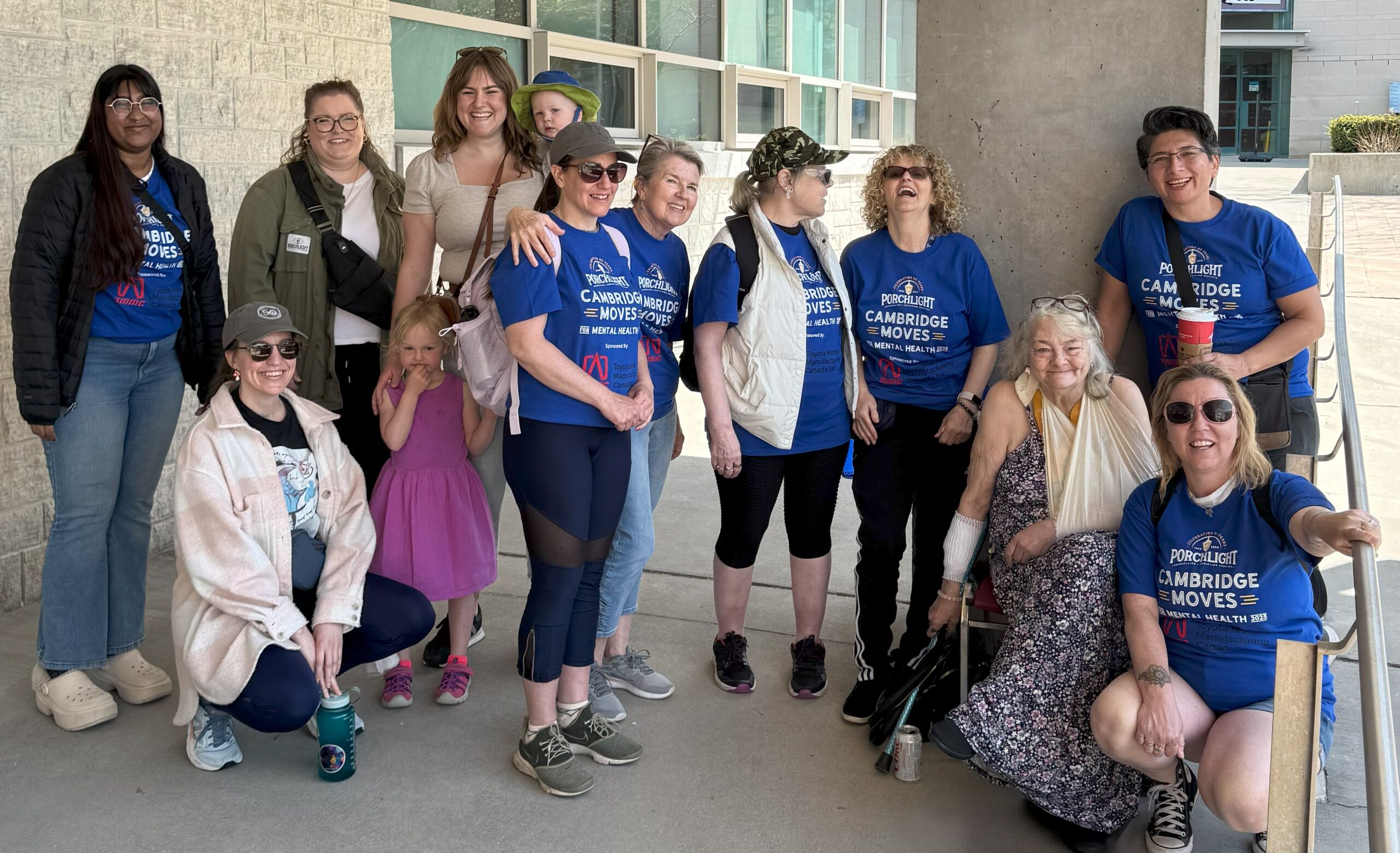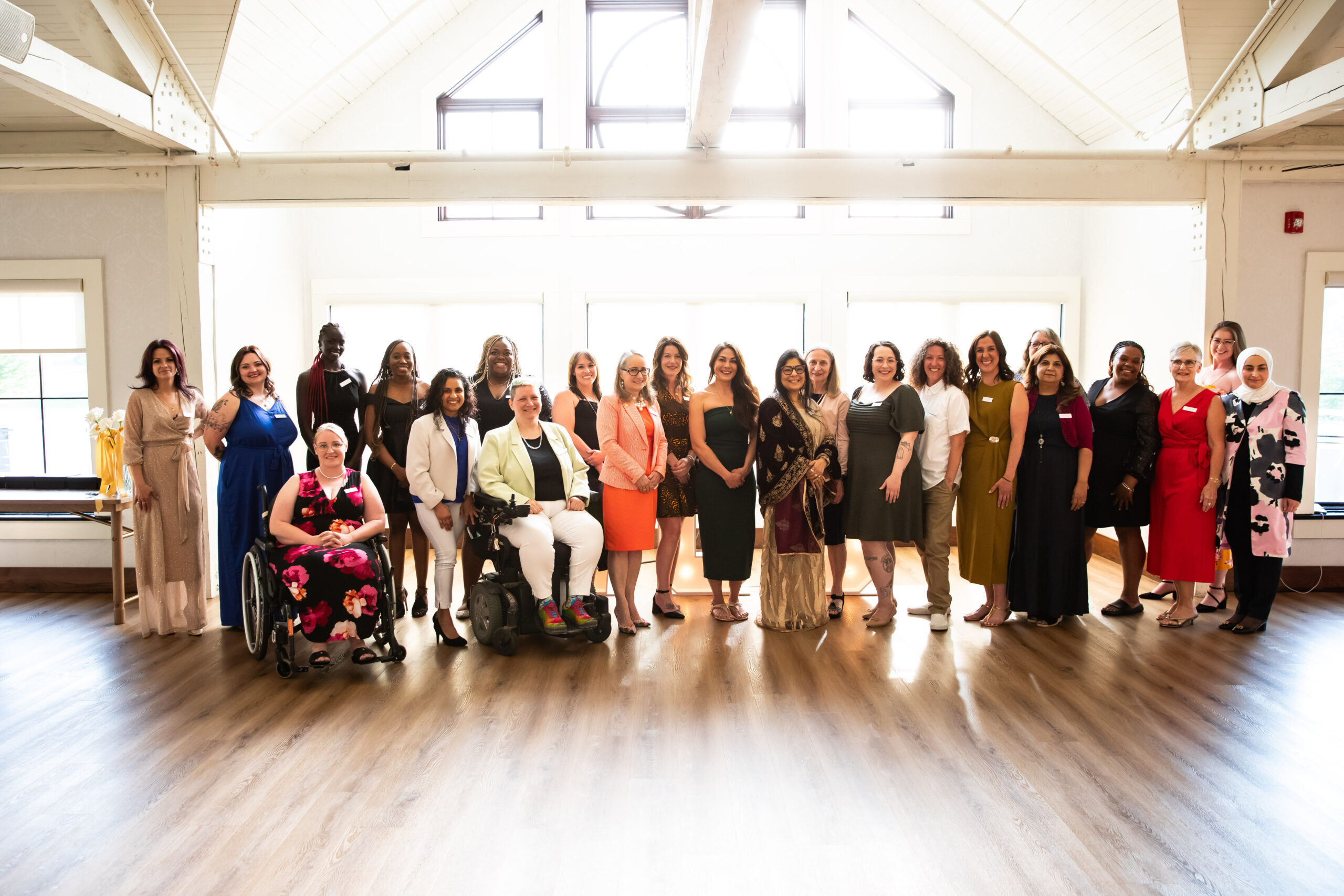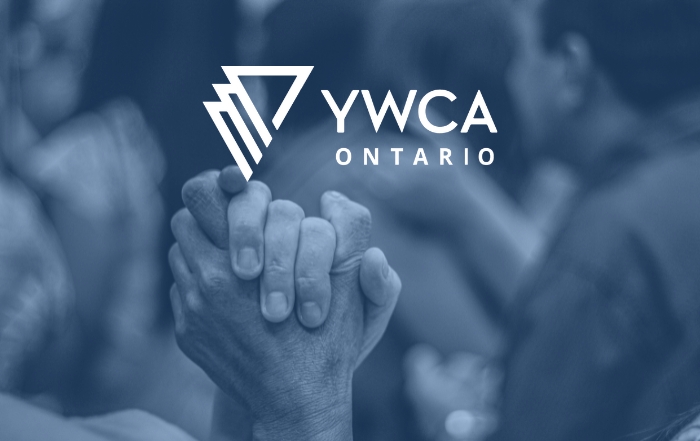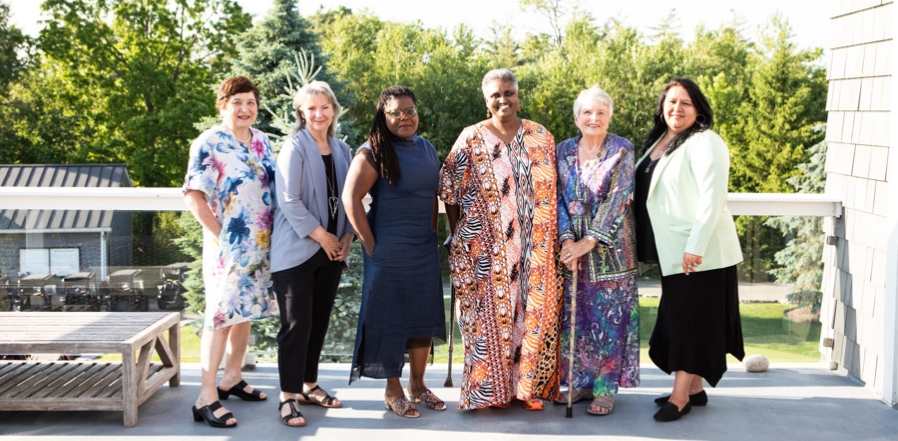On August 14, members of the YWCA Ontario coalition presented to the Province’s subcommittee on Intimate Partner Violence. This committee was struck following the Ontario government passing Bill 173: Intimate Partner Violence Epidemic passed second reading and was referred to the Justice Committee for review.
We were represented by YWCA Hamilton CEO, Medora Uppal, YWCA Toronto CEO, Heather McGregor, and YWCA Niagara Region ED, Elisabeth Zimmerman.
We thank subcommittee Chair MPP Jess Dixon for providing us with this opportunity to share more of the knowledge we’ve gained doing advocacy work in this area as YWCA Cambridge and as a part of the YWCA Ontario coalition.
Below is a transcript of the remarks we delivered to the subcommittee.
Good Morning/Afternoon Chair and members of the subcommittee.
My name is Medora Uppal, and I am the CEO of YWCA Hamilton. With me today are two of my colleagues: Heather McGregor, CEO of YWCA Toronto and Elisabeth Zimmerman, Executive Director of YWCA Niagara Region.
We represent 10 YWCA Member Associations, which operate in urban centres and rural communities that stretch from the Niagara Region to Sudbury. YWCAs recognize that Black, Indigenous and racialized women, queer and trans women and those with disabilities routinely face disproportionate levels of IPV, which requires an intersectional lens centring in our work those most at risk in as we develop policy, interventions, programs and funding models.
In 2023, YWCAs across Ontario delivered 164 gender-based violence prevention programs and 65 intervention services. We housed an average of almost 6,000 women, girls and gender-diverse individuals each night through our emergency shelters and housing programs. We also delivered more than 100 GBV public education events.
Our submission is underpinned by five principles:
- Intimate Partner Violence was a shadow pandemic during the worst of Covid-19 and IPV continues to be a real public health crisis.
- Our recommendations are designed to result in the best outcomes for survivors most at risk of intimate partner violence.
- We are guided by evidence-based recommendations across death reviews as well as those outlined in the MMIWG Calls to Justice and the Renfrew County Inquest.
- Sexual Violence, Intimate Partner Violence, and Human Trafficking are distinct experiences deserving of dedicated resources.
- And, there are multiple layers of policy, program and interventions required to end and prevent IPV and they require significant financial investment.
Women’s organizations support families fleeing violence to rebuild their confidence, recover from trauma and live meaningful lives. This work is typically underfunded or is unfunded. It is too often precarious and delivered intermittently and inconsistently while we struggle to fundraise through donations and one-time small grants. We work within a broken system that we believe is no longer sustainable.
As subject matter experts, we know that the most dangerous time for a woman and her children experiencing violence is when she tries to leave her abuser. The reality is that some women will stay in dangerous situations because they face grim outcomes: poverty, homelessness, shame, and further marginalization if they leave. Then there are those who do leave and realize there’s nowhere to go. Our shelters are constantly over capacity; shelter staff are overworked and underpaid, and repeatedly turning away women and children in crisis – brutal work which is taking a toll on all of us.
Ending intimate partner violence requires a whole of government approach. We need many solutions to this pervasive problem. This problem touches on every facet of society and life and the solutions are not rooted in the responsibilities of a single government ministry. For these reasons, we urge the government to pass Bill 173 immediately.
Let’s make predictable, stable and continuous investments in the gender-based violence support services sector.
We are not funded to meet the needs of survivors and we spend too much time and resources fundraising struggling to fill gaps.
We urgently need you to provide long-term, adequate funding for research-backed, trauma-informed wraparound support programs which could complement housing or be provided independently.
We can’t do this work successfully until you recognize gender-based violence shelter and housing workers are skilled professionals. We need an increase funding for salaries and benefits to reduce turnover and its negative impacts on service delivery.
Invest in our core funding and reduce the administrative burden on service providers related to cumbersome and bureaucratic reporting processes.
Let’s end the gendered housing crisis. If there is one thing to come out of this process, let it be that no one is a victim of femicide because she was forced to choose abuse over homelessness.
Dedicate capital and operating funds to housing projects for women and their families fleeing violence – this means a full spectrum of shelter, transitional, supportive and affordable housing projects.
Without these programs, women and their children are caught in a housing bottleneck and spending too long in shelters, or, worse: returning to dangerous homes.
It’s time to create conditions that enable women’s financial independence
Violence against women and women’s economic security are closely connected. Research by the Woman Abuse Council of Toronto finds that financial insecurity is almost a universal experience for women who have left an abusive relationship.
OW/ODSP: it’s well established that social assistance rates are devastatingly low. No one can afford to subsist alone on these rates, putting women living on social assistance at higher risk of being confined to an abusive living situation.
Let’s invest in prevention: we need upstream solutions now.
We can’t focus on crisis response alone. With upstream investments in prevention we can stop the violence before it happens, and this is more critical now than ever as rates of violence are on a steady incline. Preventing violence doesn’t happen through the criminal justice system. It happens through education, in early intervention programming by community-based organizations, in awareness and prevention campaigns that shift prevailing harmful norms and stereotypes.
We applaud this government for signing on to the National Action Plan to End Gender-Based Violence. These funds need to be allocated immediately and with long-term sustainability in mind.
Leverage the knowledge and resources we already have. Community-specific networks of organizations have been meeting to compile data, share resources and expertise for decades. They are an untapped resource. If the government reinstates the GBV roundtable, part of its mandate could be convening these various networks, consolidating research, data and best practices, and mapping programs, services and gaps.
Conclusion
I want to share my gratitude with the members of this committee for your attention to this epidemic and your commitment to finding solutions to intimate partner violence.
I want to thank the survivors who have been here and shared their personal stories in the hopes of preventing further violence. It’s my sincere hope that we can work together to honour them, as well as the countless other survivors and those silenced by femicide. It’s time to act and make investments quickly and strategically.
We look forward to sharing a more detailed written testimony with more detailed recommendations for the committee.
Thank you for your time; Heather and Elisabeth are available to respond to questions from the panel on behalf of Ontario YWCAs.










